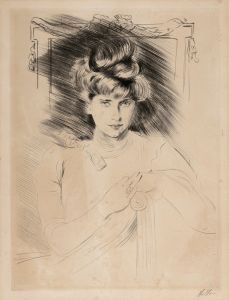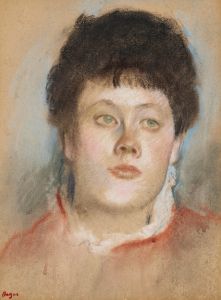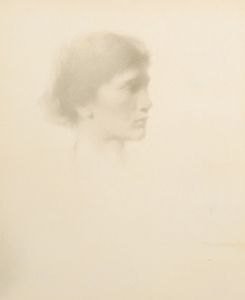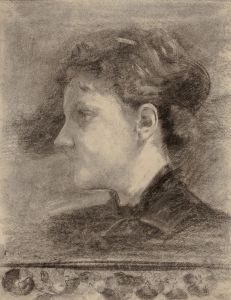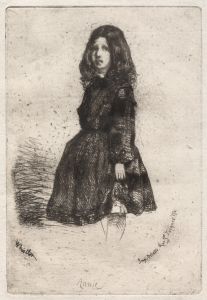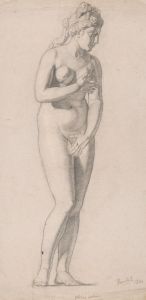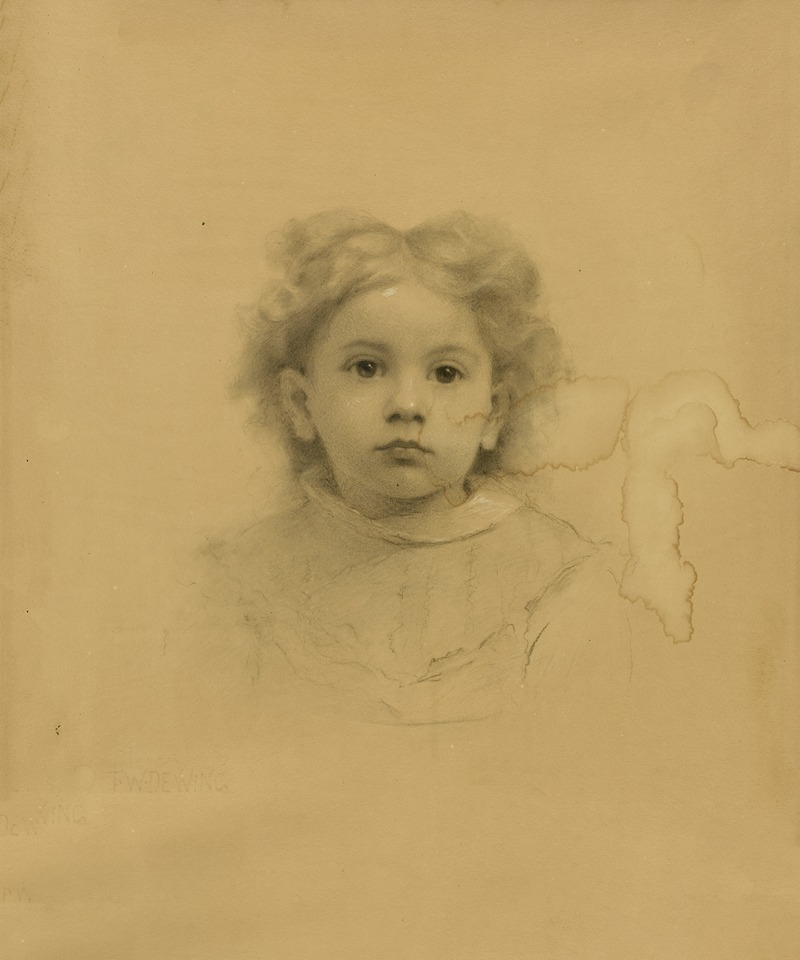
Portrait of Ethel D. Puffer
A hand-painted replica of Thomas Wilmer Dewing’s masterpiece Portrait of Ethel D. Puffer, meticulously crafted by professional artists to capture the true essence of the original. Each piece is created with museum-quality canvas and rare mineral pigments, carefully painted by experienced artists with delicate brushstrokes and rich, layered colors to perfectly recreate the texture of the original artwork. Unlike machine-printed reproductions, this hand-painted version brings the painting to life, infused with the artist’s emotions and skill in every stroke. Whether for personal collection or home decoration, it instantly elevates the artistic atmosphere of any space.
The "Portrait of Ethel D. Puffer" is a painting by the American artist Thomas Wilmer Dewing, known for his contributions to the Tonalist movement in the late 19th and early 20th centuries. Dewing, who was born in 1851 and died in 1938, was celebrated for his ethereal and atmospheric works, often depicting women in contemplative poses and settings that emphasize mood over detail.
Ethel Dench Puffer, the subject of this portrait, was a prominent psychologist and educator, known for her work in the field of aesthetics and her contributions to the understanding of the psychology of beauty. Born in 1872, Puffer was a pioneering woman in academia at a time when few women were able to pursue such careers. She earned her Ph.D. from Radcliffe College, which was then the women's coordinate institution for Harvard University, and she became a significant figure in the study of aesthetics, focusing on the psychological responses to art and beauty.
The portrait by Dewing captures Puffer in a manner typical of his style, which often involved a soft focus and a limited color palette to create a dreamlike quality. Dewing's technique involved delicate brushwork and an emphasis on the interplay of light and shadow, which imbued his subjects with a sense of introspection and tranquility. This approach aligns with the Tonalist movement, which prioritized mood and atmosphere over realism and detail.
Dewing's portraits frequently featured women in elegant, often ambiguous settings, and "Portrait of Ethel D. Puffer" is no exception. The painting likely reflects Dewing's interest in capturing the intellectual and emotional essence of his subjects, rather than merely their physical likeness. This focus on the inner life of his subjects is a hallmark of Dewing's work and contributes to the timeless quality of his portraits.
The relationship between Dewing and Puffer is not extensively documented, but it is clear that Dewing's choice to paint Puffer indicates a mutual respect and recognition of her intellectual contributions. As a woman who broke barriers in her field, Puffer's portrayal by Dewing can be seen as a celebration of her achievements and her role as a trailblazer for women in academia.
Today, Dewing's works, including the "Portrait of Ethel D. Puffer," are appreciated for their subtle beauty and their ability to convey complex emotional states. His paintings are held in various public and private collections, and they continue to be studied for their unique contribution to American art and the Tonalist movement.
The "Portrait of Ethel D. Puffer" stands as a testament to both Dewing's artistic skill and Puffer's intellectual legacy, capturing a moment in time when art and science intersected in the exploration of human perception and beauty.





